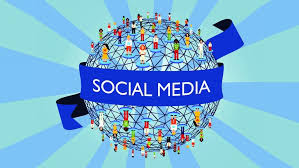Impact of social media on health
The rise of social media platforms has been one of the most significant technological advancements of the past few decades. With billions of people using social media every day, it's no surprise that it has had a profound impact on our lives in many ways. However, one area that has recently garnered more attention is the impact of social media on our mental and physical health.
➡️First, let's discuss the potential negative impact of social media on mental health. Social media can be a breeding ground for comparison, leading to feelings of inadequacy and low self-esteem. Constant exposure to curated and often unrealistic images and lifestyles can create feelings of anxiety, depression, and even eating disorders. Additionally, social media can be a source of cyberbullying, which can lead to severe emotional distress, especially among teenagers and young adults.
➡️The impact of social media on physical health is also an area of concern. The excessive use of social media can lead to a sedentary lifestyle, leading to weight gain, obesity, and other health problems. Moreover, spending too much time on social media can lead to poor sleep hygiene, which can negatively affect our overall health and well-being.
➡️However, social media can also have a positive impact on health. Social media platforms can provide a sense of community and support for people who might otherwise feel isolated or alone. People with chronic illnesses or rare conditions can connect with others who share similar experiences, providing emotional support and resources.
➡️Social media addiction: Social media can be addictive, and excessive use can lead to mental health issues such as anxiety and depression. People who spend too much time on social media may experience a decrease in their ability to focus, which can have a negative impact on their work and personal life.
➡️Self-image issues: Social media platforms are often used to share pictures and videos that have been carefully curated to present a particular image or lifestyle. This can lead to feelings of inadequacy and self-doubt, especially among younger users who are still developing their sense of self.
➡️Sleep disorders: Using social media late at night can disrupt sleep patterns, leading to sleep deprivation, fatigue, and other health problems. The blue light emitted by electronic devices can interfere with the production of melatonin, a hormone that helps regulate sleep.
➡️Cyberbullying: Social media platforms can be a breeding ground for cyberbullying, which can have a profound impact on mental health. Victims of cyberbullying may experience depression, anxiety, and suicidal thoughts, and in severe cases, may even attempt suicide.
➡️Misinformation: Social media platforms have been criticized for their role in the spread of misinformation and conspiracy theories. This can lead to confusion, anxiety, and even panic among users who are exposed to false information.
➡️Positive impact: Social media can also have a positive impact on health. For example, social media can be used to raise awareness about health issues, share information about treatment options, and connect patients with support groups and healthcare professionals.
✅Tips to avoid social media
➡️Set a time limit: Decide how much time you want to spend on social media each day and stick to it. You can use apps or tools that can help you monitor and manage your time on social media.
➡️Create a schedule: Set specific times during the day when you will check your social media accounts. This will help you avoid the habit of constantly checking for updates throughout the day.
➡️Turn off notifications: Social media notifications can be distracting and can interrupt your work or leisure time. Consider turning off notifications for social media apps to reduce the temptation to check them constantly.
➡️Replace social media with other activities: Find other activities that you enjoy doing and that don't involve social media. This could be anything from reading a book, going for a walk, or spending time with friends and family.
➡️Delete social media apps from your phone: If you find that you're constantly checking your social media apps, consider deleting them from your phone. This will make it less convenient to access social media and reduce the temptation to check it throughout the day.
➡️Join a support group: If you're struggling with social media addiction, consider joining a support group. There are many online and in-person support groups that can provide you with the tools and resources to overcome your addiction.
➡️Remember, social media can have both positive and negative impacts on your health. If you find that social media is causing you stress or negatively impacting your mental health, it's important to take steps to reduce your use. By setting boundaries and finding other activities that you enjoy, you can avoid social media and improve your overall well-being.
In conclusion, social media can have both positive and negative impacts on health, depending on how it is used. While social media platforms offer numerous benefits, it's important to use them in moderation and to be aware of the potential risks to your mental and physical health. If you are experiencing negative impacts from social media use, it may be helpful to seek support from a mental health professional.
In conclusion, the impact of social media on health is complex and multi-faceted. While social media has the potential to create positive connections and communities, it can also be detrimental to mental and physical health. It's important for individuals to use social media in moderation and to be aware of the potential risks to their health. Additionally, policymakers and social media companies must take steps to address the negative impact of social media on health, such as implementing guidelines to prevent cyberbullying and promoting healthy use of social media
- Patel Yagnik




Comments
Post a Comment